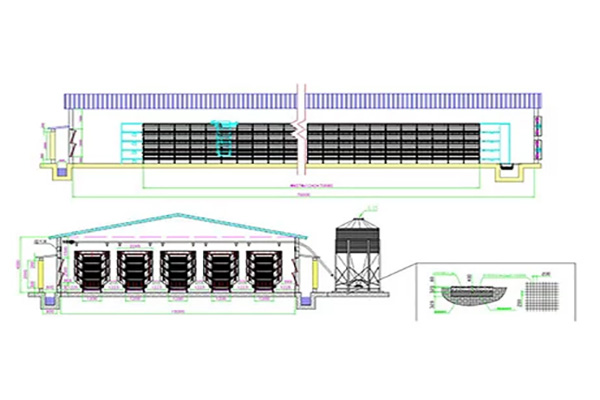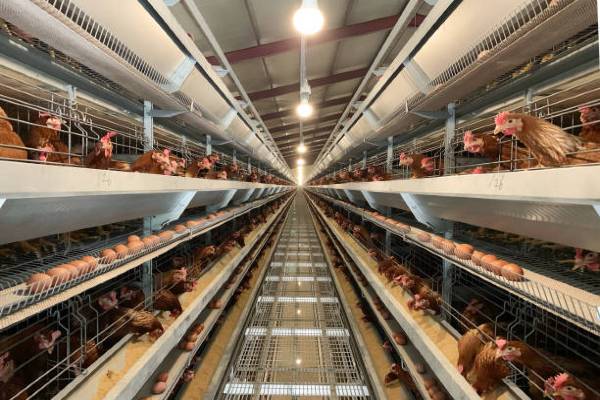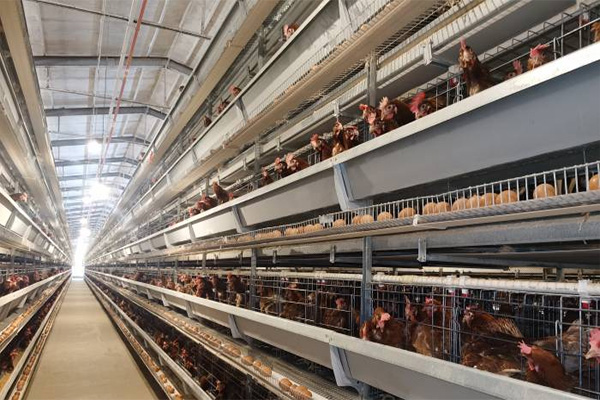How Much Does It Cost to Start a Chicken Farm?
Time : 2025-04-18
Starting a chicken farm can be a rewarding venture, offering fresh eggs, healthy chickens, and the chance to contribute to the local food scene. But how much does it really cost to get started? In this article, we’ll delve into the expenses you can expect when embarking on this entrepreneurial journey.
1. Initial Costs
Before diving into the nitty-gritty of expenses, it’s important to understand the initial costs associated with starting a chicken farm.
1.1 Property and Land
One of the biggest costs you’ll face is purchasing the property and land on which your chicken farm will be located. The price of land varies greatly depending on the region and the size of the property you need. Generally, you’ll need at least an acre of land to house a small-scale operation, but larger farms can require up to several acres.
1.2 Chicken Coops and Equipment
The next major expense is building or purchasing chicken coops. You’ll need a comfortable, safe space for your chickens to roost, lay eggs, and spend the night. Coops can range from simple pens to more complex, enclosed structures, and the costs vary accordingly. Additionally, you’ll need equipment like nesting boxes, feeders, waterers, and roosting bars for the chickens.
1.3 Livestock and Feed
One of the ongoing costs of a chicken farm is the purchase of chickens. You can expect to spend anywhere from $2 to $20 per chicken, depending on the breed and age. Additionally, you’ll need to purchase high-quality feed for your chickens, which can cost anywhere from $0.20 to $0.40 per pound, depending on the brand and type of feed.

1.4 Insurance and Permits
Don’t forget to factor in the cost of insurance and permits for your chicken farm. Insurance can range from $200 to $500 per year, and you’ll need to apply for permits depending on your location. The cost of permits can vary, but expect to spend between $50 and $200.
2. Ongoing Expenses
While the initial costs of starting a chicken farm are substantial, the ongoing expenses can add up as well. Here are some key factors to consider:

2.1 Feed and Water
As mentioned earlier, the cost of feed and water can vary significantly, but you can expect to spend anywhere from $200 to $1,000 per month, depending on the number of chickens you have and the type of feed you use.
2.2 Veterinary Care
It’s essential to maintain the health of your chickens to ensure they lay eggs and thrive. Routine veterinary care can cost anywhere from $50 to $500 per year, depending on the frequency and complexity of treatments needed.

2.3 Utilities and Maintenance
Utility expenses, such as electricity and water, will vary based on your location and the size of your operation. You can expect to spend anywhere from $50 to $300 per month on utilities. Additionally, regular maintenance of your chicken coops and equipment will be necessary, and this can cost up to $500 per year.
2.4 Advertising and Marketing
Once you have your chicken farm up and running, you’ll need to market your products to potential customers. This could involve setting up a website, running social media campaigns, or attending local markets. The cost of advertising and marketing can vary widely, from $100 to $1,000+ per month.
3. How to Estimate Your Costs
Now that you have a general idea of the costs associated with starting a chicken farm, how can you estimate your own expenses? Here are a few tips:
- Research and Plan: Do thorough research on the costs in your area, and create a detailed budget plan that accounts for all expenses.
- Talk to Other Chicken Farmers: Reach out to other chicken farmers in your area for advice and to get a better sense of what costs to expect.
- Start Small: If you’re new to chicken farming, consider starting with a small-scale operation to minimize your initial costs and learn the ropes.
- Consider Financing: Explore options for financing your chicken farm, such as loans or grants, to help cover the high initial costs.
Starting a chicken farm can be a profitable and fulfilling venture, but it’s crucial to have a realistic understanding of the costs involved. By thoroughly researching and planning your expenses, you’ll be well on your way to a successful chicken farming business.











